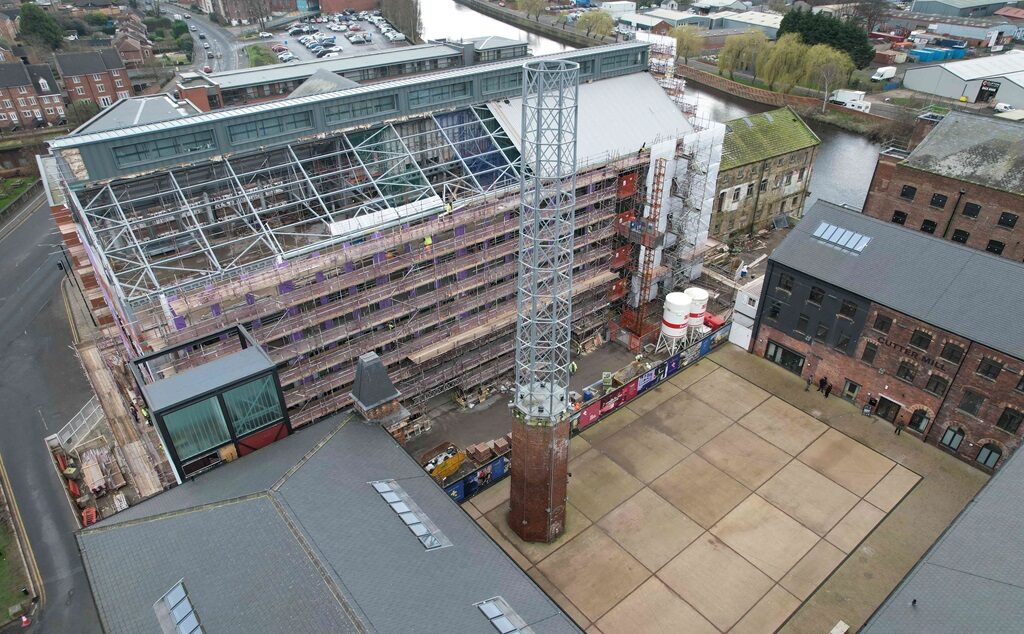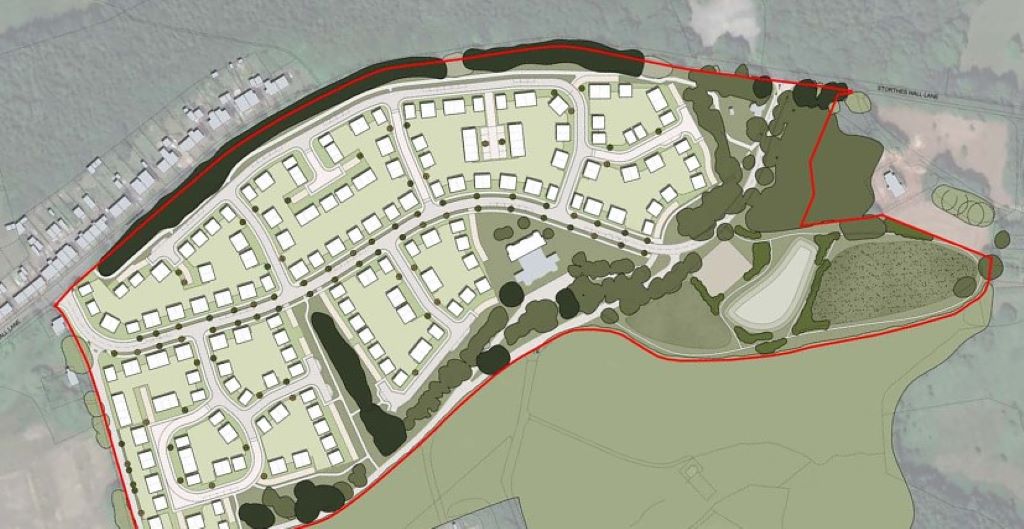Tileyard North developer gets £625,000 boost
Historic England has provided grant funding for City & Provincial Properties to enable further works at the former Rutland Mills complex in Wakefield.
The derelict former textile mill is being transformed as part of the Tileyard North project, billed as a creative hotspot on Wakefield’s waterfront.
HE’s £625,000 grant will fund work to the outside of the building, including roof, drainage and wall repairs, as well as new windows. This will secure the building’s structure, enabling its redevelopment as part of Tileyard North.
The refurbishment of Phoenix Mills forms part of phase two of the redevelopment of the Rutland Mills complex. This phase will also include the demolition of a second mill and construction of a new building in its place. Office space along with bars and a restaurant will be created.
Phase one saw the restoration of five mill buildings, and has created space for creative industries, music studios, outdoor events space, indoor events, space for festivals and concerts, a hotel, gin distillery, restaurant and bar.
Listed at grade two, Phoenix Mill is the oldest building on the site, dating from around 1800. Constructed using stone, it is thought to have originally started life as a corn warehouse.
In the mid-19th century, the building was extended and converted into the Phoenix Corn Mill before eventually becoming a textile mill and incorporated into the Rutland Mills complex, which was built in the 1870s.
Wakefield Council has backed the project from inception, with funding also provided by the Levelling Up Fund and the developer.
Duncan Wilson, Historic England’s chief executive, said: “After lying derelict for many years, it’s wonderful to see that Phoenix Mill is now rising from the ashes and will soon be given new life as an integral part of the fantastic Tileyard North.
“I applaud the bold vision of City and Provincial Properties who have rescued an important part of Wakefield’s industrial heritage and reshaped it into an engine of the city’s future prosperity.”
Founder of the developer Paul Kempe said: “We extend our thanks to Historic England for the awarding of this invaluable grant, igniting the transformation of Phoenix Mill. With their generous support, we eagerly anticipate breathing new life into this historic gem, creating more space for our creative industries hub to grow.”
In September 2021, a Historic England-commissioned report by Cushman & Wakefield revealed the potential for historic Yorkshire mills: 237 of them remain vacant or underused in the region, said C&W, many in West Yorkshire.
In all, these mills contain around 8m sq ft, meaning they have the potential for close to 9,000 homes, with a further 15,400 homes deliverable on surplus land around these mills.
HE said that alternatively, 27,600 jobs could be accommodated if the vacant space in Yorkshire’s mills was repurposed for a mix of office and light industrial use.





